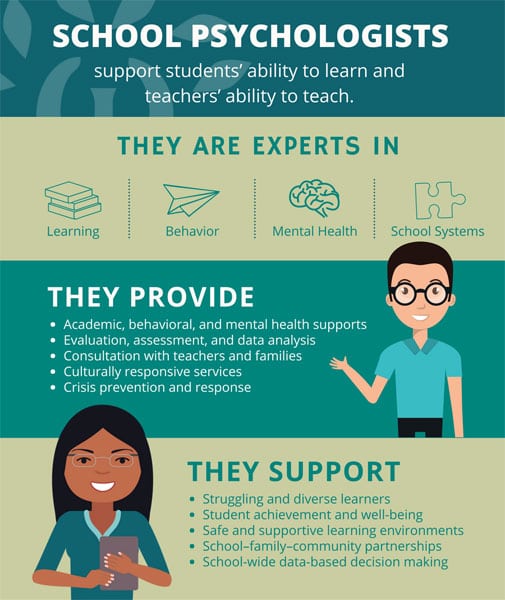
August 26, 2018; Tennessean
According to the US Department of Health and Human Services, “one in five children and adolescents experience a mental health problem during their school years,” reports the National Association of School Psychologists (NASP).
Tennessee is no exception. “More than 265,000 kids in Tennessee ages 2 to 17 have been diagnosed with a mental health issue, according to estimates by the state Department of Mental Health and Substance Abuse,” note Jessica Bliss, Holly Meyer, and Brett Kelman in the Tennessean. (The state’s population of minors, including infants, is 1.463 million). In the past year, roughly “62,000 adolescents ages 12 to 17 have had a major depressive episode” statewide.
Yet, as Bliss and her colleagues write, “Few districts in the state meet the recommended national guidelines of having one psychologist for every 1,000 students”—the minimum ratio recommended by NASP. If more comprehensive and preventive services are provided, then NASP recommends one psychologist per 500 to 700 students. Instead, “statewide, schools employed 540 psychological personnel during the 2016–2017 school year, an average of one for every 1,784 students.”
“We’ve seen shortages for a long time,” Kathy Cowen, communications director for NASP, tells the Tennessean. “Up until recently, many schools didn’t understand the importance of mental health in how it affects the school’s climate and how it interacts with safety.”
To address the gap, schools are “bringing in nonprofit organizations that provide their own mental health therapists to support students and stem behaviors that could be precursors to serious mental health issues,” Bliss and her colleagues explain. Therapists may be funded through grants, Medicaid (TennCare), or a family’s personal insurance.
A new state policy requires school counselors to spend 80 percent of their time face-to-face with students. “Until now, counselors would routinely be pulled into other duties—like test proctoring,” the Tennessean notes. Bliss and her colleagues add that psychologists who work every day at schools often find that they spend most of their time “on administrative duties and Individual Education Plan responsibilities.”
Sign up for our free newsletters
Subscribe to NPQ's newsletters to have our top stories delivered directly to your inbox.
By signing up, you agree to our privacy policy and terms of use, and to receive messages from NPQ and our partners.
“When the ratio is really big, the school psychologist is limited to only doing assessments for special education under federal special education law,” Cowen says.
Metro Nashville “employs 70 full-time and two part-time psychologists for its 86,000 students,” which is somewhat close to the recommended ratio, but, add Bliss and her colleagues, “only three Metro Nashville schools have a full-time school psychologist.” To fill the gaps, “many Tennessee school districts create partnerships with nonprofit community health organizations, including Centerstone, the Mental Health Co-op and STARS (Students Taking a Right Stand).”
Bliss and her colleagues write that Centerstone “provided therapists for about 300 Middle Tennessee schools during the 2017-18 school year, including 55 elementary and middle schools in Davidson County.” Centerstone is mostly funded through TennCare, the state’s Medicaid program. STARS raises its budget of $4 million a year from “individual donor contributions, grants, United Way support, and $1.6 million in contract services” from local school districts.
Denise Owens, a counselor at E. A. Cox Middle School in Columbia, Tennessee, says, “Right now, there are more children coming in than ever before with mental health issues.” Owens adds that she and her fellow school counselors often “spend their time scrambling to find free or low-cost services for children, including faith-based services and local nonprofits.”
Nationally, NASP notes that “up to 60 percent of students do not receive the treatment they need…of those who do get help, nearly two thirds do so only in school.”
As Bliss and her colleagues make clear, while referring students to outside providers is better than no support, the result is often less consistent care. As one parent, Shaunqueen Leatherman, says regarding her seven-year-old son Johnathan, the challenge is that the providers “don’t see him every day. They don’t know how he acts, because they aren’t there to see it.”—Steve Dubb













